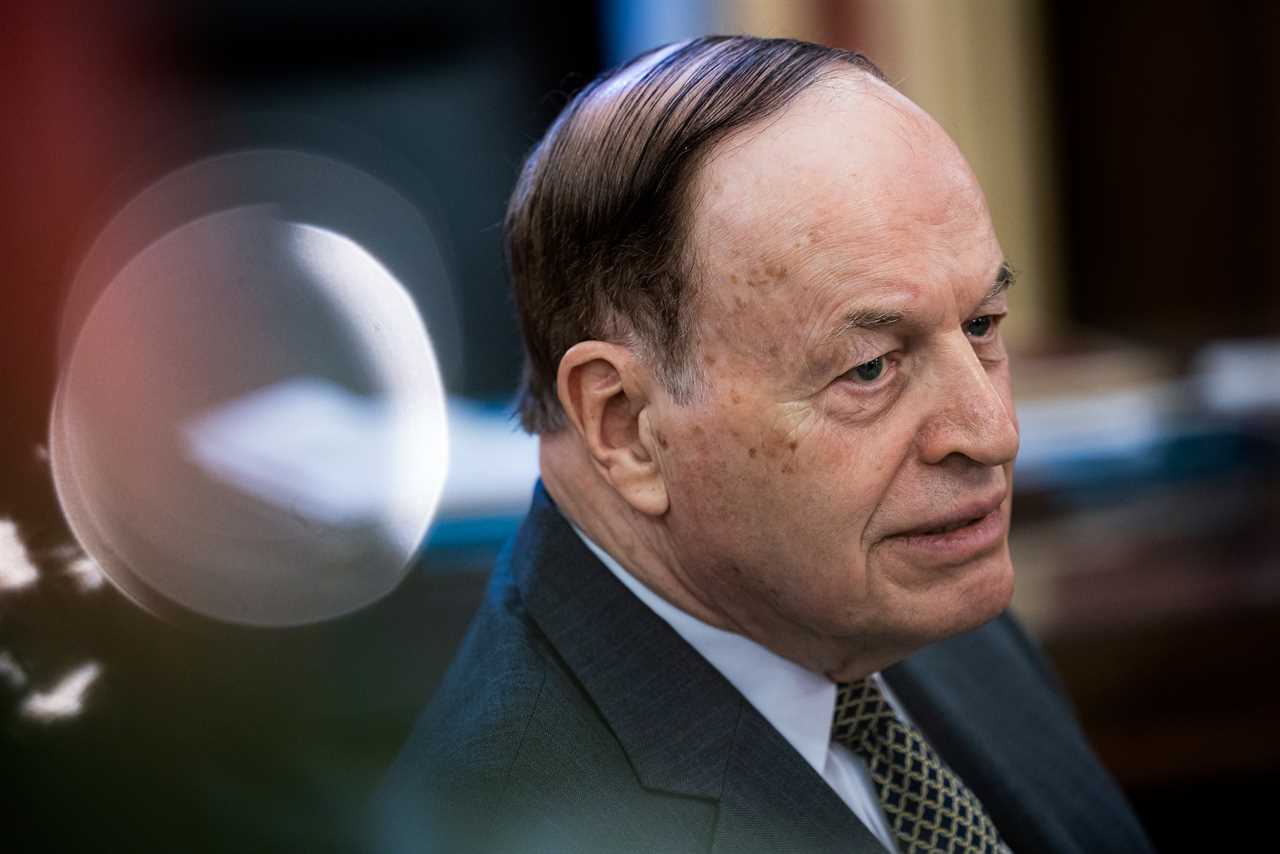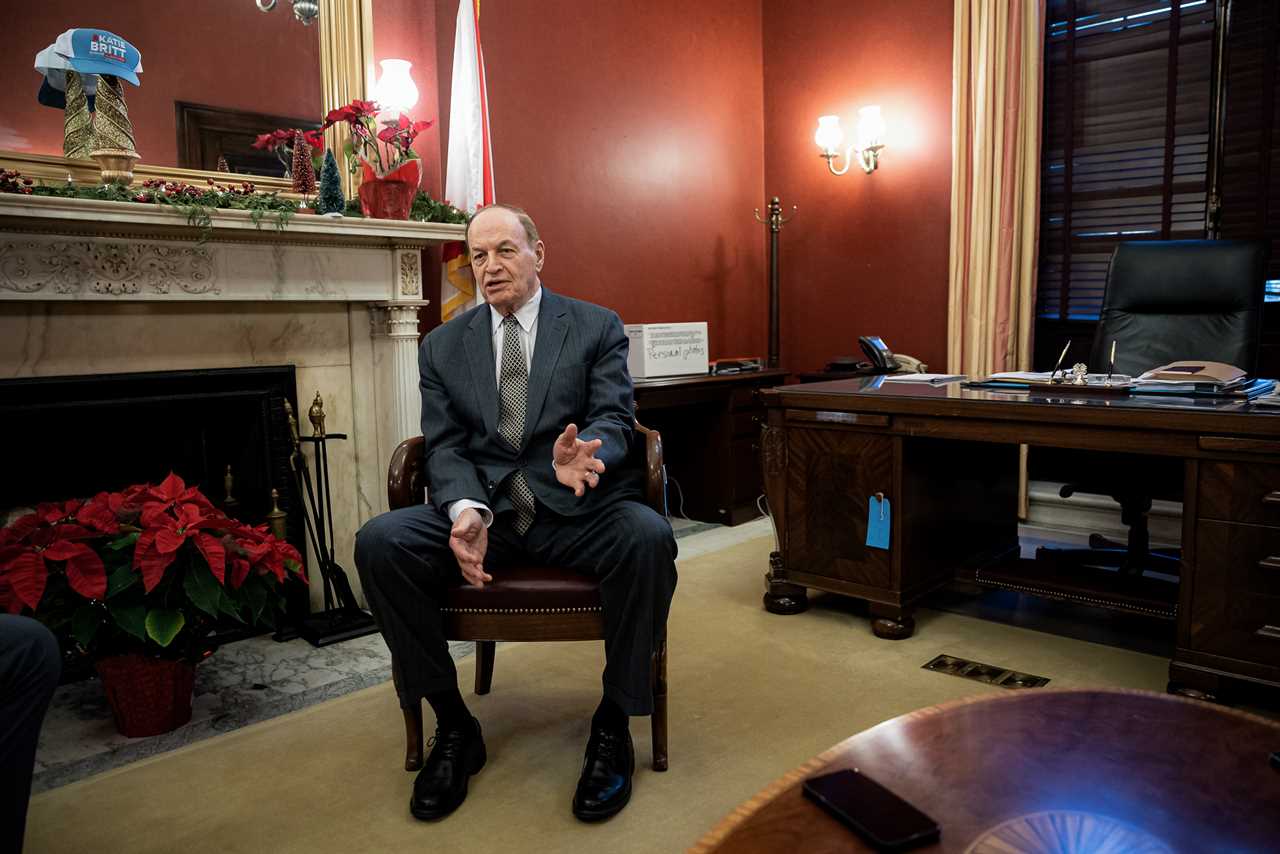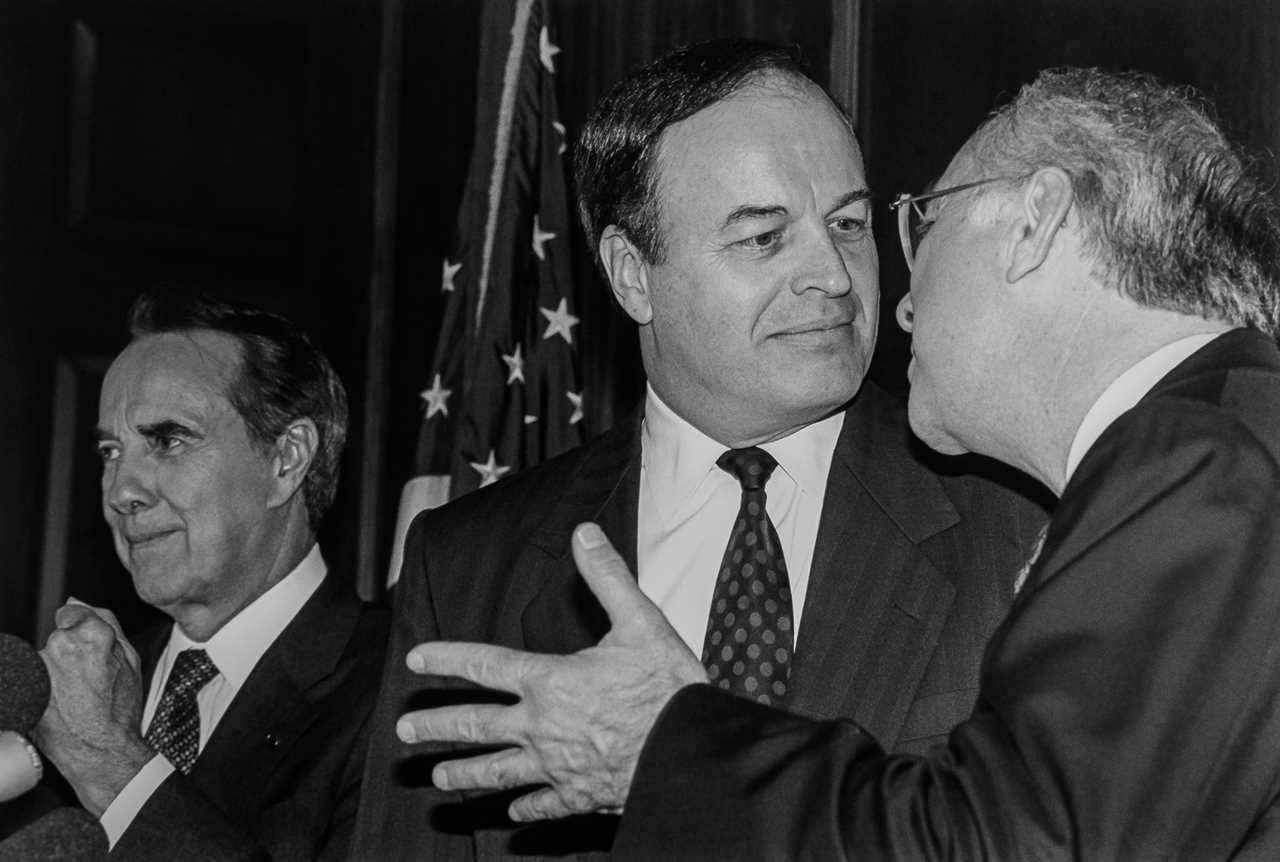
Richard Shelby is leaving the Senate after 36 years with arrows lodged in his back — by his own party.
Shelby is coming under heavy fire from conservatives for cutting one last deal with Democrats on a massive year-end spending bill, an effort supported by both Senate Minority Leader Mitch McConnell and President Joe Biden. Yet the Alabamian’s fellow Republicans are calling him a fiscal sellout for trying to fund the government for much of next year before a chaotic GOP House takes over in January.
House Freedom Caucus Chair Rep. Scott Perry (R-Pa.) calls Shelby’s proposal a “betrayal” and Rep. Chip Roy (R-Texas) describes the lead appropriator’s work as a “new monument to himself.” Meanwhile, Senate Republicans huddled about reforming what they see as a broken budget process next year after Shelby and Senate Appropriations Chair Patrick Leahy (D-Vt.) wrote much of the year-end bill behind closed doors.
Asked if he’s happy to take the heat for a deal that will divide his party painfully, Shelby replied: “Happy is a nebulous term.” For the most part, though, the 88-year-old senator is taking it in stride, arguing his critics do little good by resisting everything.
“The Republican leader in the House [Kevin McCarthy], he’s focused on one thing: being speaker,” Shelby told POLITICO last week during an hour-long interview in his office. “That’s part of the political game.”

He even thinks his work will help save the House GOP majority from itself next year, staving off months of bitter infighting over federal spending bills. Not that Shelby expects a gift basket from McCarthy and his allies.
“If we’re successful, we’ll have probably done them a favor,” Shelby said. “There probably won’t be much thanks for it.”
But “they can’t say that,” Shelby added. “I understand what they’re doing and why they’re doing it.”
The nameplate adorning his office has already been pried off. His desk, which he says once belonged to former President Lyndon B. Johnson, and chairs are tagged and ready to be hauled out. But Shelby still has a week of breakneck work left to push the $1.7 trillion government spending plan across the finish line — racing to notch a final bipartisan deal that most in his party won’t support, even if they might privately hope it passes.
It’s a fitting end to his almost four decades in Congress, with nearly the last five years spent as the GOP’s chief appropriator. After succeeding the late Republican senator from Mississippi, Thad Cochran, Shelby similarly lavished his state with federal largesse, from the Port of Mobile to the state’s university. But Shelby insisted that his critics are wrong about his motivations.
Reminded of Roy’s comment, Shelby countered: “I don’t want a monument. Monuments are for pigeons and dogs.”
Still, he is his party’s main spokesperson for a bill that’s prompted an unusual barrage of attacks from House Republicans. Even Rep. Kay Granger (R-Texas), who’s set to chair the House Appropriations Committee next year, backed out of negotiating with Shelby, Leahy and current panel chair Rep. Rosa DeLauro (D-Conn.) on the year-end deal.
“I was surprised that they didn’t enter into negotiations, because they are the Republicans in the House,” Shelby said. “They should have been at the table, but they chose not to come. That's up to them.”
Sen. Susan Collins (R-Maine), who will soon assume Shelby’s job as the party’s chief chamber appropriator, said the intra-GOP condemnations aimed at Shelby are “very unfortunate.”
“Senator Shelby is doing a good job: he’s secured additional funding for defense,” Collins said, adding that “he has repeatedly rejected the enormous increase in domestic discretionary spending” as well as locking in “the traditional riders such as the Hyde Amendment,” Congress’ longstanding ban on federal funding for abortions.
At the heart of House Republicans’ griping over the bill is the contrast between their fiscal hawk rhetoric and the reality of a mammoth bipartisan spending bill spearheaded by two retiring Senate leaders — a dynamic McCarthy mentioned several times as he teed off against a potential deal this month. House GOP appropriators say they’re in the dark about the talks Shelby is co-leading.
“They haven’t asked for my support, why would I feel obligated to vote for that bill?” said Rep. Tom Cole (R-Okla.), a senior Republican appropriator, of the Senate’s effort.
Of course, there’s a key difference between the two chambers: McConnell needs at least 10 Republicans to support a spending package and overcome a filibuster. House Republicans, in theory, don’t have to provide a single vote for the bill.
Shelby’s role taking the heat from his party “goes with the business. You know, like being a head coach,” said Sen. Tommy Tuberville (R-Ala.). When asked whether Shelby’s work helps Republicans avoid trouble next year, Tuberville answered unequivocally: “Yes.”
It’s ancient history now, but Shelby’s career arc is newly relevant in the wake of Sen. Kyrsten Sinema’s (I-Ariz.) decision to ditch the Democratic Party. Shelby was first elected to the Senate in 1986 as a Democrat, joining the Republican Party in 1994.

During a breakfast at the White House as a relatively new congressman in 1981, Shelby recalled, then-President Ronald Reagan and then-Vice President George H. W. Bush tried to convince him to switch parties. At the time, Shelby thought he was fairly “progressive.”
So Shelby stayed with the Democrats and even toyed with the idea of leaving office. Yet by the time he made the switch 13 years after that meal, he had earned a reputation for cozying up to the GOP and often voting with Republicans. In 1993, Shelby criticized then-President Bill Clinton’s budget with three words that Republicans still use today: “The taxman cometh.”
After serving as both a Democrat and a Republican, Shelby said he learned that “you’re not going to have your way yourself. You’ve got to work with other people to advance your cause. Try to understand where they’re coming from.”
It just so happens that Shelby’s former chief of staff, Katie Britt, is taking his place as Alabama’s next Republican senator. Britt defeated Republican Rep. Mo Brooks in a runoff earlier this year. Shelby directed his own political funds to help Britt get elected and “did everything I could to help her … but she did a lot on her own, though. She’s a spirited woman.”

Britt is interested in a spot on the Appropriations Committee — which, if she lands it, would continue Shelby’s legacy of delivering billions of dollars to their state’s defense industrial base, harbors, universities and more. Her ambition sharply contrasts with that of Brooks, “an outsider,” according to Shelby.
“I didn’t think he’d be good for Alabama,” Shelby said. “He’s against everything.”
That candor is a fitting reminder of what Shelby’s trying to pull off this week: a legacy-sealing agreement that could be the Hill’s last big spending deal for years. It’s the type of legislation that contains a lot of provisions Shelby would vote against if they stood alone — but as a whole, sums up his old-school approach.
“You can’t be against everything. I’m pretty conservative in a lot of ways, but I’m not against everything,” Shelby said.
----------------------------------------
By: Caitlin Emma, Burgess Everett and Jordain Carney
Title: Shelby's swan song: A spending spat within his party
Sourced From: www.politico.com/news/2022/12/19/richard-shelby-appropriations-gop-spending-bill-00074398
Published Date: Mon, 19 Dec 2022 04:30:00 EST
Did you miss our previous article...
https://consumernewsnetwork.com/politics-us/what-is-so-funny-about-this






